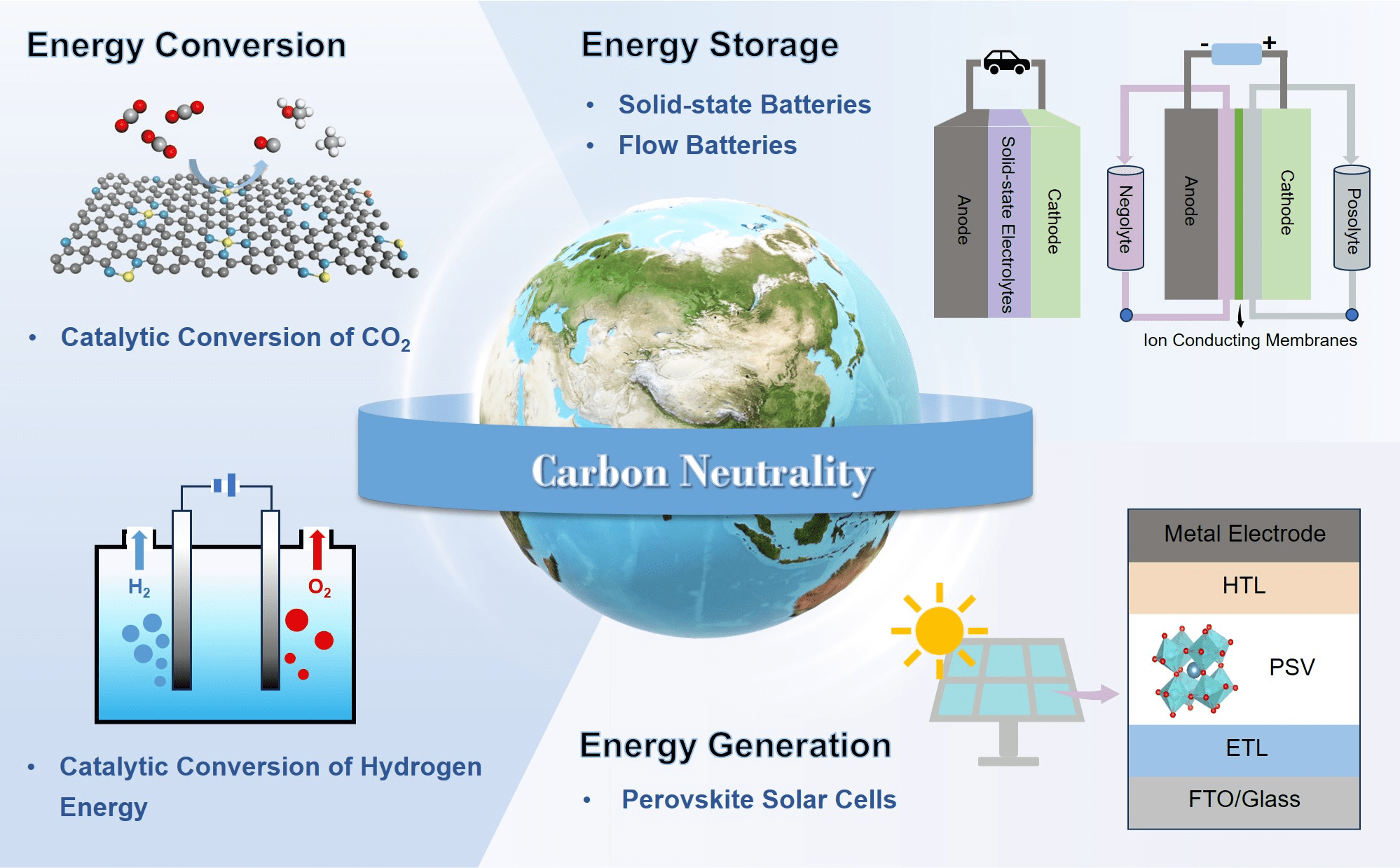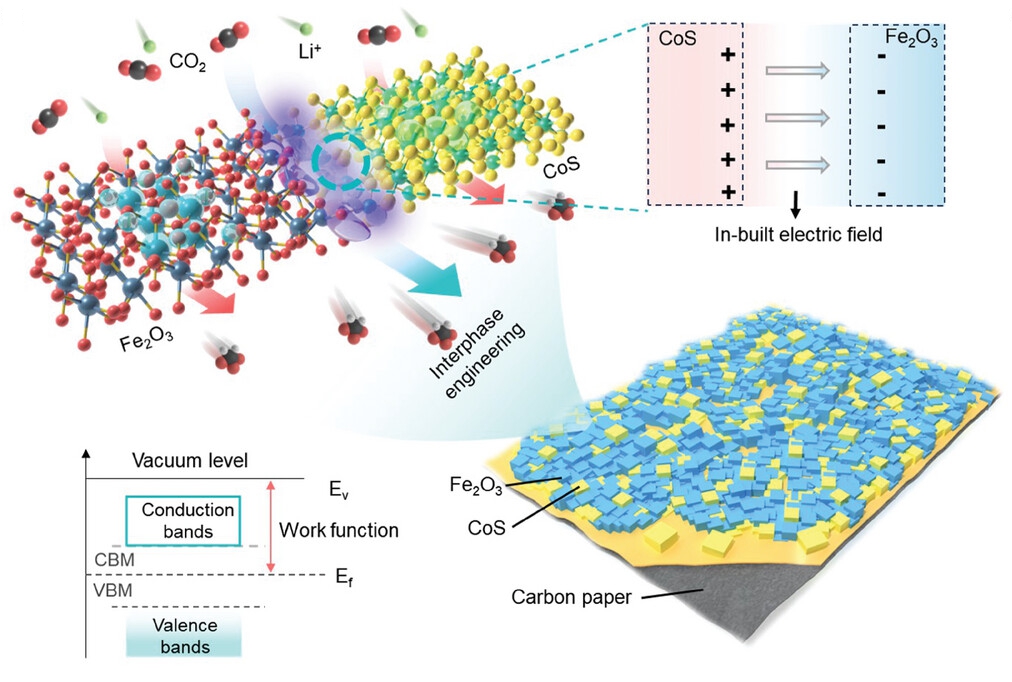
Energy Storage

Energy storage is one of the core focus of our research, particularly in the areas of solid-state batteries and flow batteries. Our group employ a synergistic approach that combines DFT simulations with AI methodologies to accelerate the discovery and optimization of energy storage materials. In solid-state batteries, our efforts center on understanding lithium-ion transport, interfacial compatibility, and phase stability in solid electrolytes. By training AI models on DFT-derived data and experimental databases, we can efficiently predict new materials with superior ionic conductivity and enhanced stability. In the realm of flow batteries, we integrate theoretical modeling with experimental validation to guide the design of high-performance zinc-based electrodes. Our recent studies have demonstrated that theoretical insights can effectively inform the development of electrode architectures and surface modifications, leading to improved cycling stability and overall electrochemical performance.
[1] Hu, Y.; Min, Z.; Zhu, G.; Zhang, Y.; Pei, Y.; Chen, C.; Sun, Y.*; Liang, G.*; Cheng, H.-M. Predeposited Lead Nucleation Sites Enable a Highly Reversible Zinc Electrode for Stable Zinc-Bromine Flow Batteries. Nature Communications 2025, 16 (1), 3255.
[2] Lu, B.; Min, Z.; Xiao, X.; Wang, B.; Chen, B.; Lu, G.; Liu, Y.; Mao, R.; Song, Y.; Zeng, X.-X.;Sun, Y.*; Yang, J.*; Zhou, G.* Recycled Tandem Catalysts Promising Ultralow Overpotential Li-CO2 Batteries. Advanced Materials 2024, 36 (1), 2309264.
Energy Conversion

To achieve carbon peaking and neutrality goals, developing efficient electrochemical energy conversion technologies is crucial. However, key reactions like water splitting (HER/OER) and CO₂ reduction (CO₂RR) involve complex multi-electron/proton transfers and interfacial effects, which hinder catalytic performance. Our group addresses these challenges by designing high-performance, low-cost electrocatalysts and uncovering their mechanisms and structure-activity relationships. We employ multi-scale theoretical simulations, integrating DFT, electronic/spin structure analysis, reaction pathways, high-throughput screening, and machine learning. These methods help us understand the coupling between atomic structure, electronic states, and catalytic behavior. Based on these insights, we develop strategies for structural regulation and activity enhancement, providing a theoretical foundation for rapid catalyst screening and performance prediction.
[1] Ma, H.; Ye, X.; Li, X.; Xu, Z. J.*; Sun, Y.* Ferroelectric Polarization Effects of Single-Atom Catalysts on Water Oxidation. Advanced Materials 2025, 2500285.
[2] Chen, Z.; Li, X.; Ma, H.; Zhang, Y.; Peng, J.*; Ma, T.; Cheng, Z.; Gracia, J.;Sun, Y.*; Xu, Z. J.* Spin-Dependent Electrocatalysis. National Science Review 2024, 11 (9), nwae314.
[3]Sun, Y.; Wang, J.; Xi, S.; Shen, J.; Luo, S.; Ge, J.; Sun, S.; Chen, Y.; Hanna, J. V.; Li, S.; Wang, X.; Xu, Z. J.* Navigating Surface Reconstruction of Spinel Oxides for Electrochemical Water Oxidation. Nature Communications 2023, 14 (1), 2467.
Energy Generation

Developing sustainable and efficient energy generation systems is a key challenge in the fields of materials science and catalysis. Our group addresses this challenge through the design of advanced functional materials, with a particular emphasis on perovskite solar cells (PSCs). Specifically, we focus on tin halide perovskites and inverted PSC architectures as promising candidates for next-generation solar technologies that are low-cost, stable, and high-performing. To accelerate innovation, we integrate DFT calculations with artificial intelligence (AI) techniques to enhance both modeling accuracy and predictive capability. This strategy allows us to gain a deeper understanding of the structure-property relationships that govern PSC performance. Our work contributes to the development of PSCs with improved efficiency, long-term stability, and scalability for real-world applications.
[1] Ye, X.; Yuan, W.; Fu, P.; Yang, X.; Chu, X.; Bai, Y.*; Sun, Y.*; Cheng, H.-M.* A Full-process Artificial Intelligence Framework for Perovskite Solar Cells. Science China Materials 2025, 68 (7), 2526-2535.